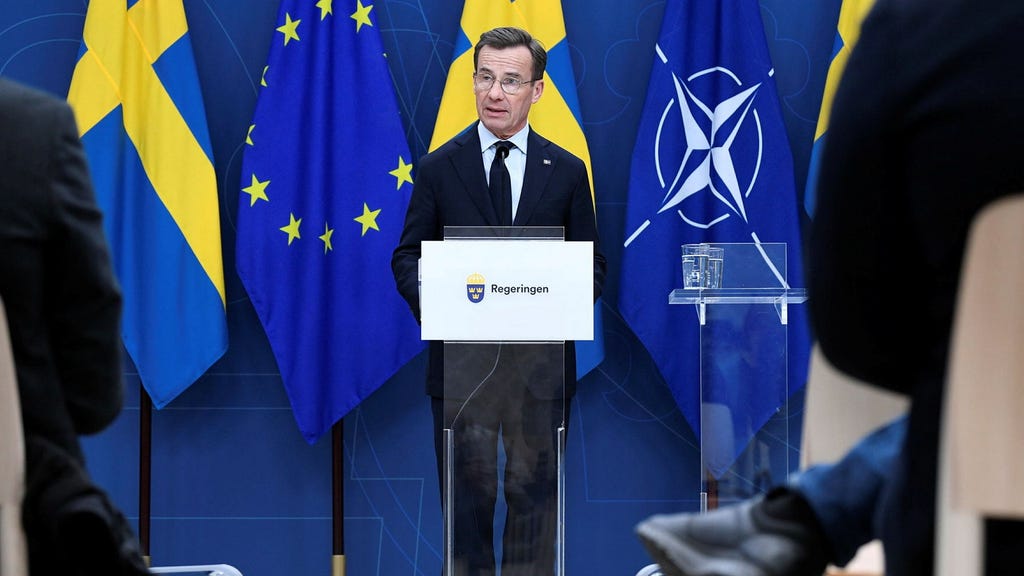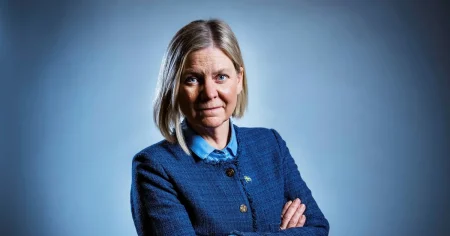The re-emergence of Donald Trump as a dominant force in American politics presents a complex and multifaceted challenge to the Swedish political landscape, particularly in the context of Sweden’s recent accession to NATO. The previously strong and optimistic embrace of transatlantic cooperation, fueled by shared security concerns and culminating in NATO membership, is now likely to be tempered by a more critical and cautious approach. The potential for Trump’s return to the White House raises fundamental questions about the reliability of American leadership, the future direction of US foreign policy, and the implications for Sweden’s own national interests and security priorities. This shift in perspective necessitates a deeper examination of the dynamics shaping transatlantic relations, the potential impact of Trump’s policies on global stability, and the adjustments Sweden may need to make to navigate this evolving geopolitical reality.
One of the most immediate impacts of a potential Trump presidency on Sweden would be the reassessment of the strength and reliability of the NATO alliance. Trump’s past rhetoric and actions, including questioning the value of NATO and demanding increased financial contributions from member states, have created a sense of uncertainty and vulnerability among European allies. Sweden, having just joined the alliance, may find itself in a precarious position, grappling with the potential erosion of collective security guarantees and the need to recalibrate its defense strategy. This could involve increased defense spending, closer cooperation with European partners, and a greater emphasis on self-reliance in security matters. Furthermore, Trump’s ”America First” approach to foreign policy, which often prioritizes bilateral deals and transactional relationships over multilateral cooperation, could undermine the cohesion and effectiveness of NATO, leaving Sweden with diminished security assurances.
Beyond the immediate security implications, a Trump presidency would likely usher in a period of increased tension and unpredictability in transatlantic relations. His disregard for established diplomatic norms, his propensity for confrontational rhetoric, and his unpredictable policy shifts could create friction with European allies, including Sweden. Disagreements over trade, climate change, human rights, and international cooperation could strain the relationship and limit the potential for constructive dialogue. Sweden, traditionally a strong advocate for multilateralism and international cooperation, might find itself at odds with a US administration that prioritizes unilateral action and disengages from global institutions. This would require Sweden to navigate a delicate balance, maintaining a functional relationship with the US while also upholding its own values and interests on the international stage.
Swedish political parties, across the ideological spectrum, are now compelled to learn from the factors that contributed to Trump’s rise and sustained influence. Understanding the underlying social, economic, and political grievances that fuel populist movements is crucial for preventing similar trends from taking root in Sweden. This involves addressing issues such as economic inequality, social division, and anxieties about immigration and globalization. Furthermore, Swedish parties need to reflect on the effectiveness of their communication strategies and their ability to connect with voters who feel marginalized or disenfranchised. The rise of populism in the US and elsewhere serves as a stark reminder of the importance of engaging with the public, addressing their concerns, and building trust in democratic institutions.
The potential return of Trump to the presidency poses a significant challenge to Sweden’s foreign policy objectives and its vision for a stable and cooperative international order. Sweden’s long-standing commitment to multilateralism, human rights, and international law would likely be at odds with a Trump administration’s ”America First” agenda. This could create tensions and limit opportunities for collaboration on global issues such as climate change, nuclear non-proliferation, and humanitarian crises. Sweden might find itself increasingly reliant on European partners and other like-minded countries to advance its foreign policy goals and defend the principles of international cooperation. Furthermore, Sweden would need to develop strategies for engaging with a potentially unpredictable and confrontational US administration, while also protecting its own interests and values.
In conclusion, the prospect of a Trump presidency presents a significant turning point in transatlantic relations and poses unique challenges for Sweden. The previously strong and optimistic embrace of cooperation under the NATO umbrella will likely be replaced by a more cautious and critical approach. Sweden will need to adapt to a potentially more unpredictable and transactional US foreign policy, recalibrate its defense strategy, strengthen its ties with European partners, and navigate the complexities of a strained transatlantic relationship. Furthermore, Swedish political parties have an opportunity to learn from the factors that have contributed to Trump’s success and address the underlying grievances that fuel populist movements. By doing so, Sweden can strengthen its own democratic institutions and contribute to a more stable and cooperative international order. The era of uncomplicated transatlantic partnership is likely over, and Sweden must prepare for a more complex and challenging geopolitical landscape.














